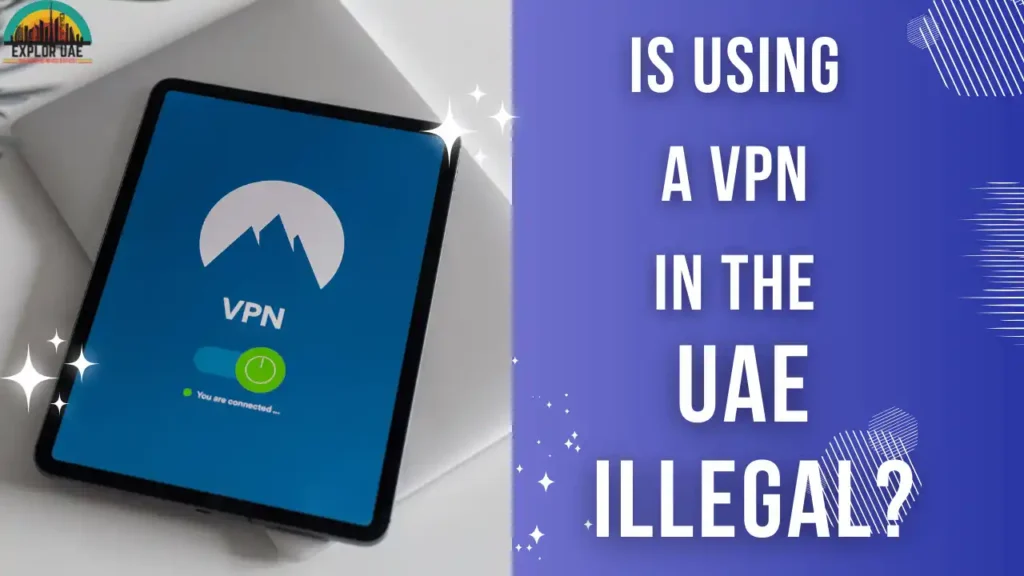Is Using a VPN in the UAE Illegal?

In an age where online privacy and security have become paramount, many individuals consider using Virtual Private Networks (VPNs) to safeguard their internet activities. However, if you’re in the UAE, you might be wondering, is using a VPN in the UAE illegal? This article delves into the legal landscape surrounding VPN usage in the UAE, the potential risks involved, and the reasons why individuals might choose to use a VPN despite these concerns.
Understanding VPNs and Their Purpose
Before we address the legality of VPN usage in the UAE, it’s important to understand what a VPN is and why people use them.
1. What is a VPN?
A VPN is a service that encrypts your internet connection, allowing you to browse the web anonymously. It creates a secure tunnel between your device and the internet, masking your IP address and providing a layer of protection against potential surveillance or data theft.
2. Common Uses of VPNs
People use VPNs for various reasons, including:
- Privacy Protection: To keep their online activities private from government surveillance, ISPs, and malicious actors.
- Accessing Geo-Restricted Content: To bypass geographical restrictions on websites and streaming services, enabling access to content that might be unavailable in certain regions.
- Secure Connections: To protect sensitive data when using public Wi-Fi networks.
The Legal Framework of VPN Usage in the UAE
Now, let’s address the crucial question: is using a VPN in the UAE illegal?
1. The Law on VPN Usage
In the UAE, the Telecommunications and Digital Government Regulatory Authority (TDRA) regulates internet usage. While using a VPN is not outright illegal, the manner in which you use it can lead to legal repercussions. The UAE’s Cyber Crimes Law prohibits the use of VPNs to commit illegal activities, such as accessing blocked websites or engaging in unlawful online behavior.
2. Legal Consequences of Misuse
Using a VPN to bypass government restrictions can result in severe penalties. Under Article 1 of the UAE Cyber Crimes Law, individuals caught using a VPN to commit a crime can face fines ranging from AED 500,000 to AED 2 million and potential imprisonment. It is crucial to note that while the VPN itself is legal, its usage for illegal activities is not.
Risks Associated with VPN Use in the UAE
When considering is using a VPN in the UAE illegal, it’s essential to evaluate the risks involved in using a VPN in this jurisdiction.
1. Government Surveillance
The UAE government employs strict monitoring of internet activities, particularly concerning political dissent and anti-government sentiments. Although a VPN encrypts your data, it is still possible for authorities to identify VPN traffic patterns, especially if you are using an unregulated service.
2. Potential Fines and Legal Action
As mentioned earlier, using a VPN to engage in illegal activities can result in hefty fines and imprisonment. Even if your intentions are benign, if you accidentally access restricted content, you could face legal consequences.
3. Security of VPN Providers
Not all VPN services are created equal. Some providers may log user data, while others could be based in countries with lax privacy laws. Choosing an unreliable VPN could expose your personal information rather than protect it.
Reasons for Using a VPN in the UAE
Despite the risks and potential legal implications, many residents and visitors in the UAE still opt to use VPNs. Here are some reasons why:
1. Accessing Restricted Content
The UAE has stringent internet censorship laws, with numerous websites and services blocked. Many residents use VPNs to access popular platforms like Skype, WhatsApp calls, and other social media sites that may be restricted.
2. Enhanced Privacy and Security
Using a VPN can significantly improve your online privacy and security. This is particularly important for individuals who frequently use public Wi-Fi networks, where data interception is a risk.
3. Remote Work Flexibility
With the rise of remote work, many employees find themselves needing access to company resources that might be restricted in the UAE. A VPN allows secure access to work-related tools and platforms.
Choosing the Right VPN for Use in the UAE
If you decide to use a VPN despite the potential risks, it’s essential to choose a reputable provider. Here are some factors to consider:
1. No-Logs Policy
Select a VPN that has a strict no-logs policy, meaning they do not store any of your data or online activities. This ensures that even if requested by authorities, your information remains private.
2. Strong Encryption
Look for a VPN that uses strong encryption protocols (such as AES-256) to ensure your data is secure and cannot be easily accessed.
3. Server Locations
Choose a VPN with a wide range of server locations, including servers within the UAE. This can help improve your connection speed and stability while browsing.
4. Positive Reviews
Research user reviews and expert opinions to find a trustworthy VPN provider. Community feedback can offer insights into the reliability and effectiveness of a VPN service.
Conclusion
So, is using a VPN in the UAE illegal? The answer is nuanced. While using a VPN itself is not illegal, utilizing it to engage in prohibited activities can lead to severe consequences. It is vital to understand the local laws and regulations before deciding to use a VPN in the UAE.
If you choose to use a VPN, prioritize security and privacy by selecting a reputable provider and using the service responsibly. By adhering to the laws of the UAE and ensuring your online activities remain within legal boundaries, you can enjoy the benefits of a VPN without the associated risks.
As internet freedom continues to evolve, staying informed about the legal landscape and best practices for online security will be crucial for residents and visitors alike. Always prioritize safe browsing and comply with local regulations to ensure a smooth and secure online experience.
